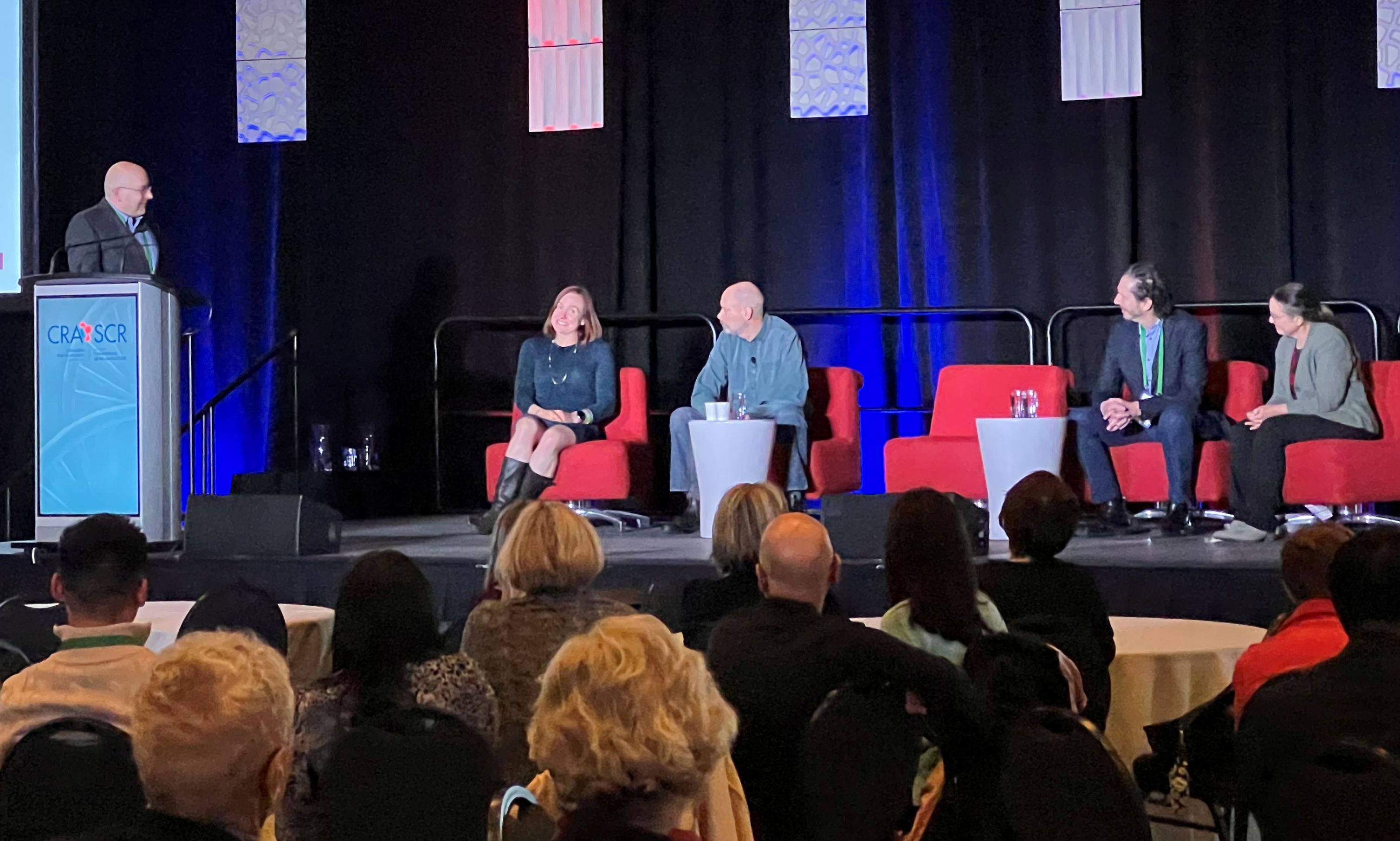Summer 2025 (Volume 35, Number 2)
Great Debate 2025: Be it Resolved that MSK POCUS Should be a Mandatory Component of Rheumatology Curricula
By Volodko Bakowsky, MD on behalf of Julie Brooks, BPT, Brian Feldman, MD, MSc,
Carol Hitchon, MD, BSc, MSc, and Michael Stein, MD
Download PDF

The Great Debate team (from left to right): Volodko Bakowsky (chair),
Julia Brooks, Brian Feldman,
Michael Stein, and Carol Hitchon.
Musculoskeletal point of care ultrasound (MSK POCUS) is becoming a common ancillary examination in rheumatology practices across Canada. Hence, this year The Great Debate at the CRA Annual Scientific Meeting tackled the issue of whether training in MSK POCUS should be mandatory for all post-graduate training programs in the country.
Arguing in favour of the motion were Julia Brooks and Dr. Michael Stein.
They argued that MSK US enhances diagnostic accuracy, improves patient care, and supports more precise monitoring of disease activity and treatment response. They emphasized that it has become an essential tool in modern rheumatology practice and that standardized training would ensure consistent and safe use across practitioners. When polling both US and Canadian rheumatology trainees and program directors, the vast majority are in favour of including MSK POCUS in their curricula.
On the contrary side of the motion were Drs. Brian Feldman and Carol Hitchon.
They countered that while MSK US may have some utility in certain situations, making training mandatory may not be practical or necessary for all rheumatology trainees. Concerns were raised about training resource limitations, the exceedingly high cost of the technology, and especially the time constraints in already crowded curricula. They argued for flexibility and individual or institutional discretion.
In conclusion, while there was consensus on the utility of MSK US, the debate rested on whether the training should truly be mandatory at this stage of the landscape in rheumatology, or whether flexibility should be maintained.
The Great Debates always seem to end too soon, and this year was no exception. The eager voting of attendees temporarily crashed the evaluation app, so the vote was taken via audience applause-o-meter. The audience noise decibels were in favour of the against team and, thus, the motion was rejected. When the software eventually caught up, the vote was 51.6% against vs 48.4% for, indicating just how close the debate was.
What was not rejected was the popularity of the event as one of the highlights of the CRA Meeting. Attendees listened, learned, laughed, and liked what they saw.
Volodko Bakowsky, MD, FRCPC
Interim Division Head/Chief,
Associate Professor, Division of Rheumatology,
Department of Medicine, Dalhousie University
Halifax, Nova Scotia
|
